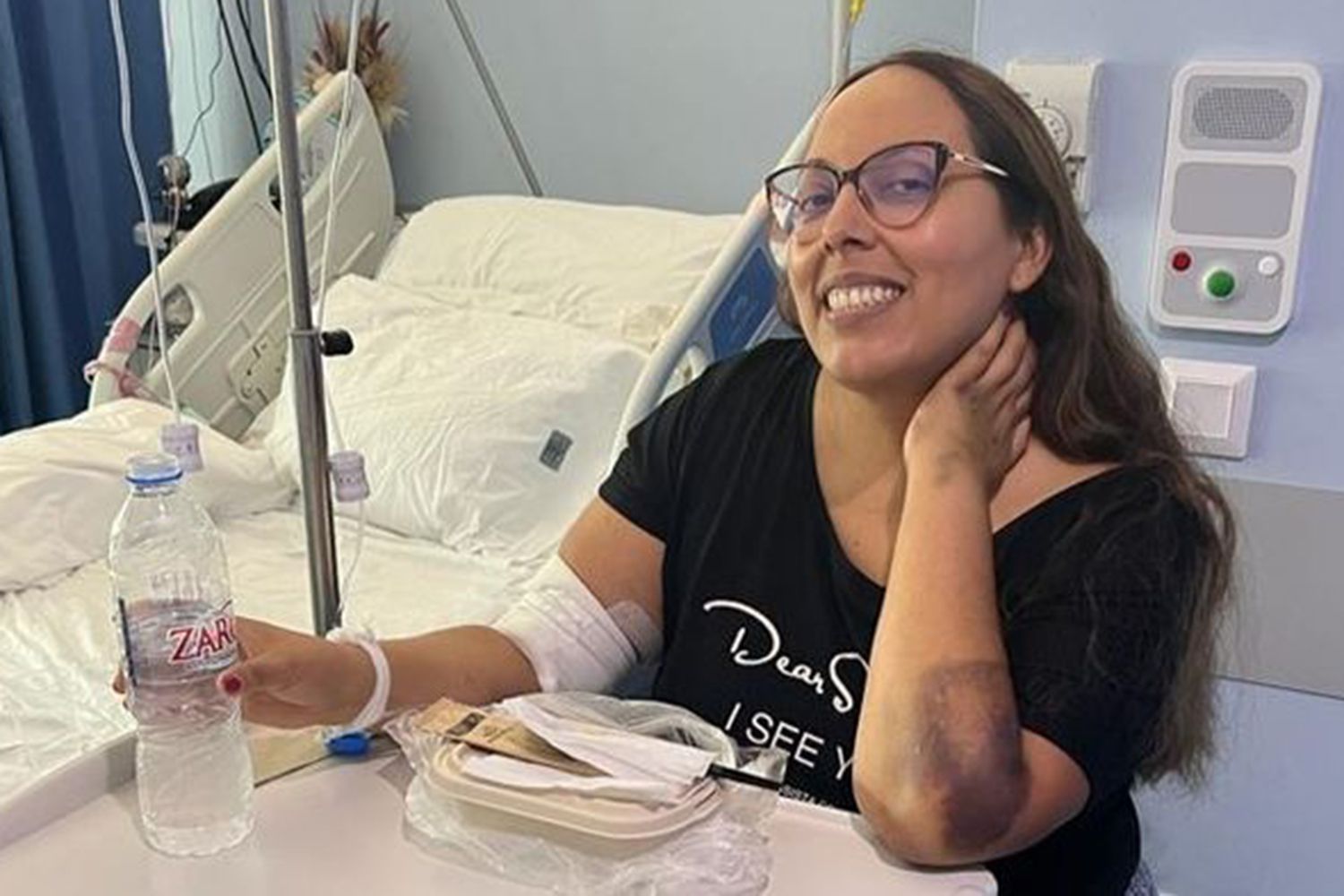Blood
Seattle Woman Diagnosed with Blood Cancer While on Vacation in Greece Must Stay for Weeks
When Sandra Gutierrez left her hometown of Seattle to travel to Greece for a destination wedding, she never expected to be diagnosed with cancer.
But the day after arriving in Crete, Gutierrez, 43, noticed bruises all over her arms and legs.
“I noticed…an anemia rash, which is like purple (spots),” she told TODAY.com. “I called one of my best friends, who is a PA [physician assistant], and she’s like, ‘Sandra, go get your blood done.’”
Gutierrez found a local lab and the staff directed her to see a doctor. “When I got to the doctor, he was like, ‘You need to go to the emergency room.’”
In the ER her abnormal blood counts indicated something was seriously wrong.
Although Gutierrez hadn’t felt any pain, she did experience fatigue after arriving in Crete — but attributed it to jet lag. Prior to the trip she’d had other unusual symptoms, including a menstrual period that lasted for two weeks but, since her periods were often irregular, she didn’t think anything of it. Now she knows it was an indication of a serious health issue.
GoFundMe
After Gutierrez missed her friend’s wedding on Aug. 27, she learned she had acute lymphoblastic leukemia (ALL). The situation was so dire that she was told she couldn’t leave the hospital to return home for treatment. “I knew I was in trouble,” she said. “It was an initial shock.”
Acute lymphoblastic leukemia is a type of cancer of the blood and bone marrow — the spongy tissue inside bones where blood cells are made, according to the Mayo Clinic.
“I have to be here for at least a month,” Gutierrez told Today. “With acute lymphoblastic leukemia, the sooner the treatment, the better, and it has to be in-hospital treatment.”
As she underwent treatments, she updated her friends, one of whom connected her to a doctor in New York City, Dr. Gail Roboz, professor of medicine at Weill Cornell Medicine and director of the leukemia program at New York Presbyterian Hospital.
“This disease comes on quick and strong,” Roboz told Today, adding that symptoms include low platelet count, bruising and bleeding.
“It could be menstrual bleeding. It could be a nosebleed that won’t stop. It could be gastrointestinal bleeding,” Roboz said. “It could just be bruising all over the place.”
He explained why she couldn’t leave Greece to fly home.
“This is an area that makes doctors really nervous,” Roboz continued. “You’re taking someone who is a young patient who has a potentially curable disease, and you’re going into an unknown risk of getting onto a flight,” adding that even a medical evacuation flight is not equipped for a bleed that could occur with ALL, since in-flight pressure changes can worsen bleeds.
GoFundMe
Roboz said that bone marrow “makes normal white blood cells that fight infection, normal red blood cells that carry around oxygen and give you energy, and normal platelets, which are little tiny cells that help you clot.” In patients with leukemia, leukemic cells take over bone marrow function, decreasing the blood’s ability to fight infection, carry oxygen and clot correctly.
Doctors told Gutierrez her treatments would take about a month and that she should be able to return to the U.S. in late September. When Gutierrez gets home, she plans to finish her treatment with Roboz.
“We are very, very hopeful,” Roboz told Today. “It’s terrifying for anything like this to happen anywhere. But to be very far from home (makes it tougher).”
Gutierrez is still figuring out how to pay the medical bills. Because she is not a citizen of Greece she must pay for her treatment upfront by wire transfer. “Americans are not set up to pay bills in the European Union,” she told Today. “They do it very differently.”
“Everybody’s reaching out to me, so that has energized me and given me perspective,” she said. “I’m taking this as a blessing where I get to connect with folks that I wouldn’t have otherwise.”
A GoFundMe has been set up to help her pay for expenses, which have reached more than $95,000.
On Sept. 9, Gutierrez posted an update on the page from her hospital bed to share the latest on her condition and to thank everyone who has supported her through the ordeal.
“Words cannot express my gratitude for the immense support from my family, friends, sorority sisters and even strangers who have galvanized and donated to ensure I am not alone in this fight,” she said.

